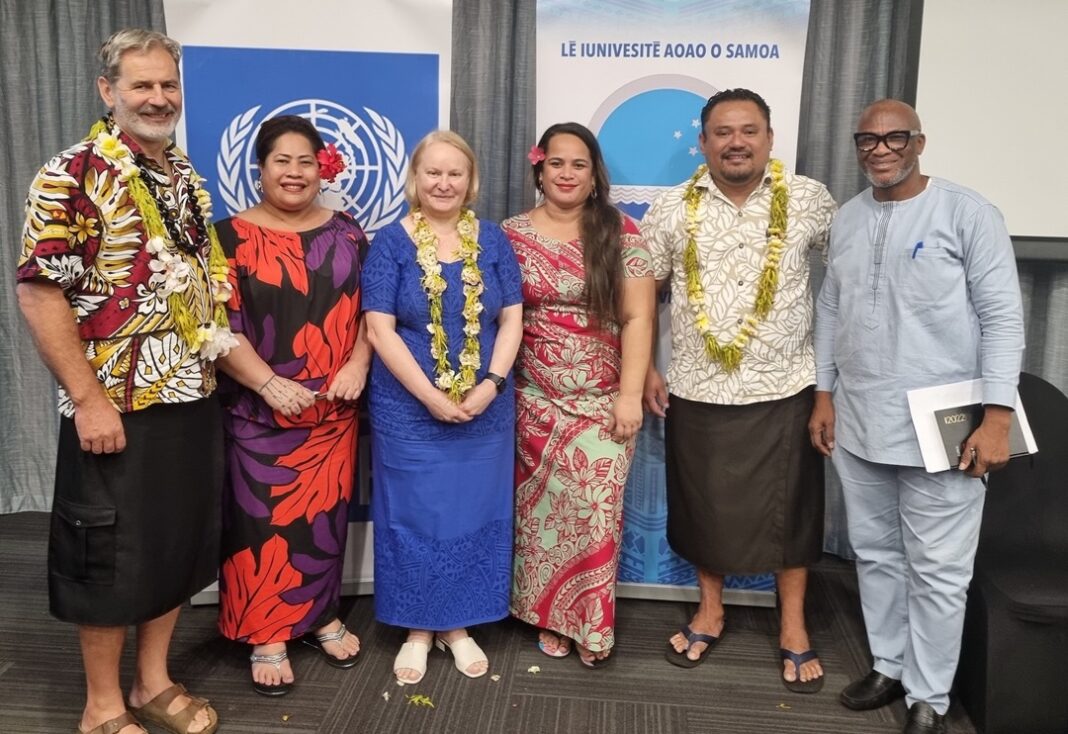Apia, Samoa – A just green transition is not just a buzz phrase of the moment. It is in fact a critical issue that every country needs to consider in light of the current climate crisis. This is especially so for small island developing states (SIDS) like Samoa.
It is why the National University of Samoa (NUS) and the United Nations Development Programme (UNDP) this week rolled out what is hoped to be a series of policy dialogues on a just green transition. The third policy dialogue to be co-hosted by NUS and UNDP, held on Wednesday, July 17, 2024, focused on facilitating a just green transition for human development in Samoa.
With the adverse impacts of climate change worsening each year, and the window for action rapidly closing, countries are strengthening efforts to decarbonize, green their economies, and build resilience. “The concept of a just green transition is particularly relevant to Samoa. It’s not merely about reducing our dependence on imported fuels or meeting global climate goals. It’s about reimagining our development path in a way that enhances our resilience, create new economic opportunities and improves the lives of all Samoans, especially our women, youths and persons with disabilities,” said Professor Tuifuisa’a Dr. Patila Amosa, NUS Vice Chancellor and President.
Representatives from the various sectors in government, private sector, and civil society as well as academia were well represented in the policy dialogue. They heard presentations from NUS Associate Professor Dr. Anita Latai Niusulu, who provided the context of a just green transition in relation to Samoa, and Dr. Vladimir Kalinski, on enabling the green transition agenda in Samoa, highlighting as a case study UNDP’s Japan-funded Climate Action Pathways for Island Transport (CAP-IT) Project, of which he is Project Manager.
Participants heard about the many benefits of a just green transformation for Samoa. Beyond its environmental dividends, a green transition holds immense financial and human development advantages for the nation. By investing in renewable energy infrastructure and sustainable transportation systems, Samoa can unlock new avenues for economic diversification, attract foreign investment, and create green jobs for its people. Furthermore, improved access to clean energy and transportation enhances mobility, connectivity, and social inclusion, thereby fostering equitable development and enhancing the quality of life for all Samoans.
“However, realizing the vision of a just green transformation requires collective action and collaboration. No single entity or sector can achieve this monumental task alone. It is imperative that we forge partnerships across government, civil society, academia, and the private sector to drive innovation, mobilize resources, and implement effective policies and initiatives. By harnessing the collective wisdom, expertise, and resources of diverse stakeholders, we can catalyze transformative change and pave the way towards a sustainable and resilient future for Samoa,” said Aliona Niculita, UNDP Resident Representative.
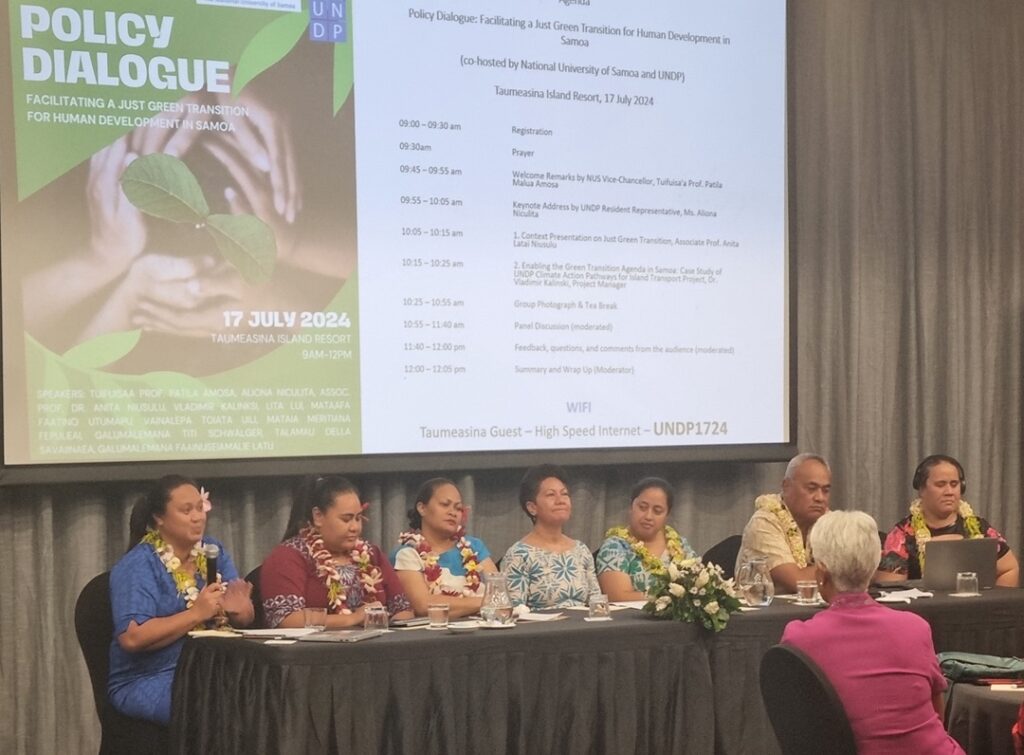
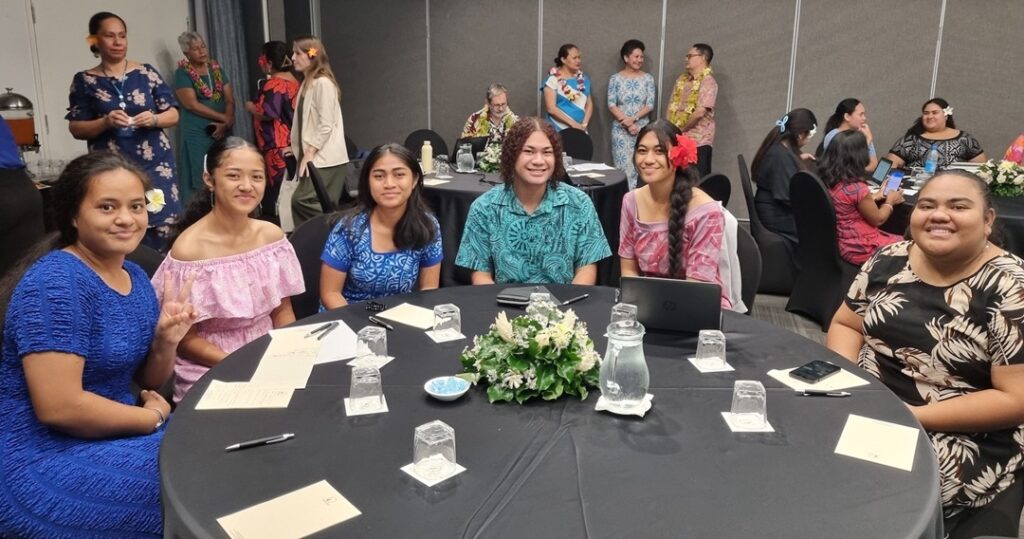
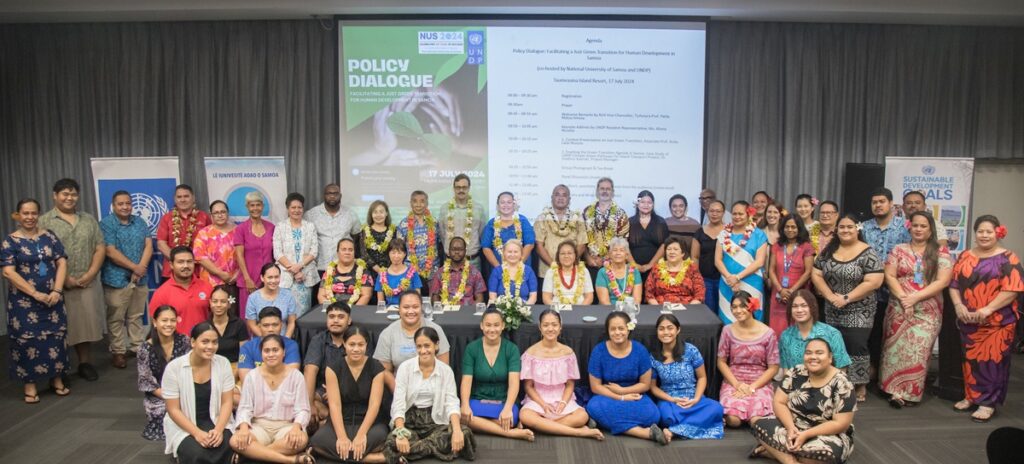
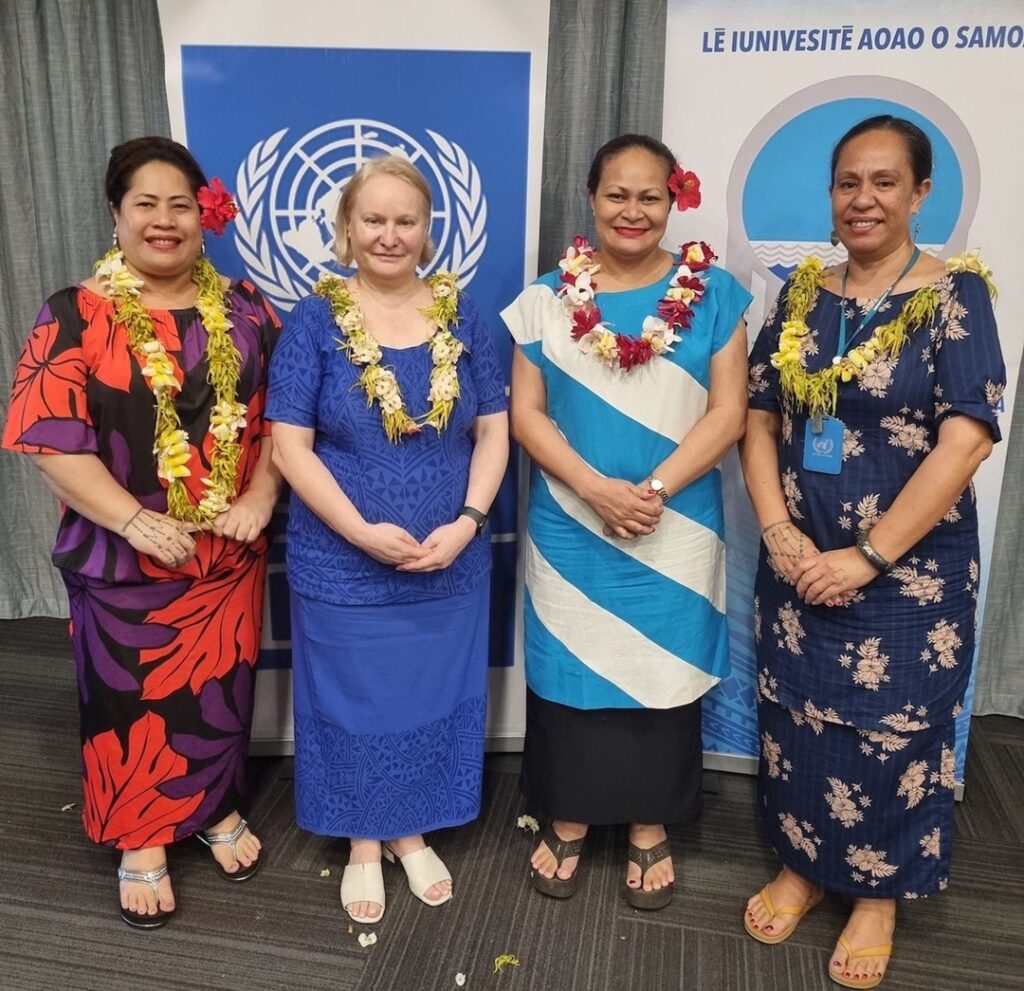
Panelists for the policy dialogue included Vainalepa Toiata Apelu Uili, Assistant Chief Executive Officer (ACEO), Ministry of Natural Resources and Environment, Matai’a Meritiana Fepulea’i Tanuvasa, ACEO, Ministry of Women, Community and Social Development, Talamau Della Savaiinaea, ACEO, Ministry of Works, Transport and Infrastructure, Mata’afa Fa’atino Utumapu, Manager, Nuanua o le Alofa, Lita Lui, CEO, Samoa Chamber of Commerce and Industry, Galumalemana Titi Schwalger, KVA Consult, and Galumalemana Fa’ainuse’iamalie Latu, Head – Department of Science, NUS.
Discussions centered around taking small but impactful steps towards the green transition, ensuring that it is inclusive, consultative, equitable and efficient. There were concerns raised about the practicality of this transition especially in terms of affordability for the average person. It was noted that a just green transition should not only advance climate action, but also the progress of the Sustainable Development Goals, notably those related to affordable and clean energy, decent work and economic growth, reduced inequalities, and responsible production and consumption.
It was also acknowledged that there can be no just green transition without the involvement of people with disabilities (PWDs) from the beginning of the process till the end. The dialogue aimed to generate new insights and knowledge that can help advance understanding of policy options, and spur advocacy and action by policymakers and other stakeholders. The findings and recommendations from the Policy Dialogue will inform a NUS-UNDP policy paper, to be published by December 2024, as per a Memorandum of Understanding signed between the two entities last year.
For more information, please contact: Leilani Smith, Marketing and Communications Officer, NUS, Samoa | Tel. +685: 20072 ext. 283 E: [email protected] | www.nus.edu.ws
Laufālē’ainā Lesā, Communications Analyst, UNDP Multi Country Office, Samoa | Tel. +685 23670 E: [email protected] | www.ws.undp.org




